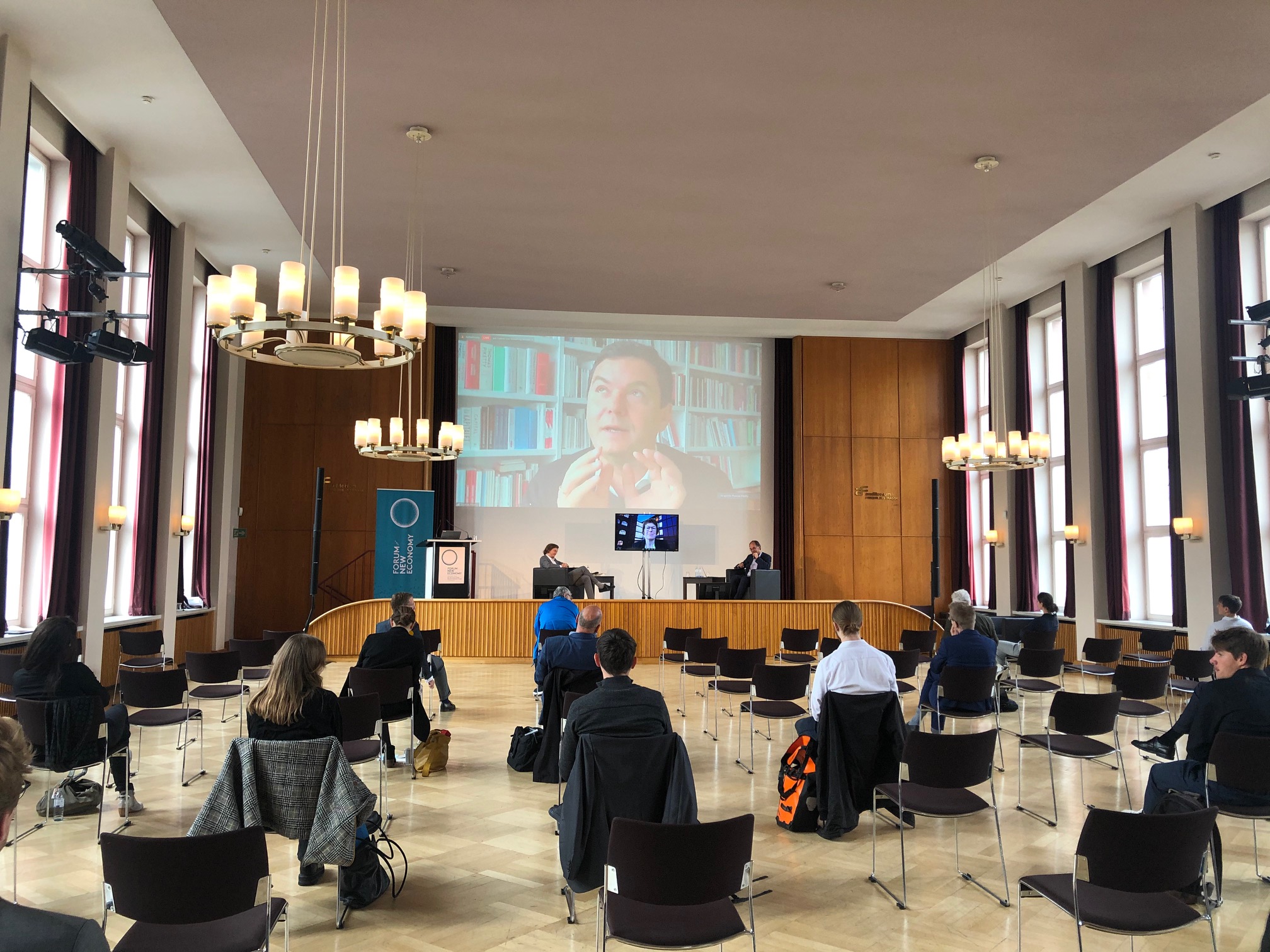EUROPE
Highlights – Thomas Piketty on the German ideology and the renovation of Europe
We summarize the keynote of Thomas Piketty at the 7th New Paradigm Workshop and his discussion with Moritz Schularick and Veronika Grimm.
BY
MARC ADAMPUBLISHED
2. OCTOBER 2020READING TIME
3 MIN
Thomas Piketty, best-selling author and Professor of Economics at Paris School of Economics, delivered a keynote address on the second day of the VII New Paradigm workshop. Contrary to what one might have expected, Piketty was very optimistic about Germany’s future role in Europe.
While every country is different and it’s hard to judge from the outside, Piketty reminded the audience that Germany has been very innovative and progressive throughout its history and that it has been France, which has been much more conservative on many economic issues. As an example, Piketty recounts the wealth tax imposed by Germany in the aftermath of WWII. This was an impressive new solution to counter the massive public debt at the time and Piketty traces the origins of this innovation back to the understanding of property rights in the 1949 German constitution.
Given that a lot of progressive things came from Germany, the idea that German economists are always more conservative is simply not true and is rooted in nationalistic discourses.
Piketty commented on the current European situation saying that the big new innovation is the common European public debt.
But those 350 billion are just 0,5% per EU GDP per year and relatively small in historical perspective. He argued that the unanimity vote is counterproductive and sometimes you should go forward with a smaller group of countries and after some years the remaining countries will join when they see that it’s beneficial.
Veronika Grimm commented on the keynote saying that it was the deep European integration that led to strong cooperation during the recent crisis. The member of the German Council of Economic Advisors sees three reasons why she is optimistic of even more European cooperation: 1. The threat of climate change and global warming, 2. The retreat of the US to provide global public goods and 3. The issue of migration
On the crucial point that a coalition of the willing might be a way to go for further European integration, Prof. Grimm was in line with Thomas Piketty.
INET fellow Moritz Schularick provocatively jumped into the discussion and claimed that the old distinction between discretion and rules has become a little bit obsolete and the current crisis has opened a lot of doors for European integration. Germany, the professor of economics at Bonn University said, would be open to a federal Europe, but the marriage proposal has to come from France.
Piketty responds to Moritz’s marriage proposal that if Germany and France go forward towards more European integration for example at the corporate tax level, then we might split Europe because some of the smaller countries will not go along. One should be prepared for that.
Overall, the three economists agreed that there is a big opportunity for European integration but that we have to get the institutions right.
